Press Release – Fatal accident at Alang yard during cutting of BW Offshore vessel
A worker lost his life while scrapping BW Offshore’s Floating Production Storage and Offloading (FPSO) unit CIDADE DE SAO VICENTE (IMO 7380693) at an Indian beaching yard on 21 April. According to local sources, a nitrogen tank removed from the vessel violently exploded and killed the worker on the spot.
BW Offshore sold the FPSO to Priya Blue Industries shipbreaking yard in Alang, India, in February at a price of USD 12.8 million cash after a cold-lay-up in Oman and unsuccessful attempts to negotiate a new contract in Brazil, where the unit operated for eleven years under charter for Brazilian giant Petrobras.
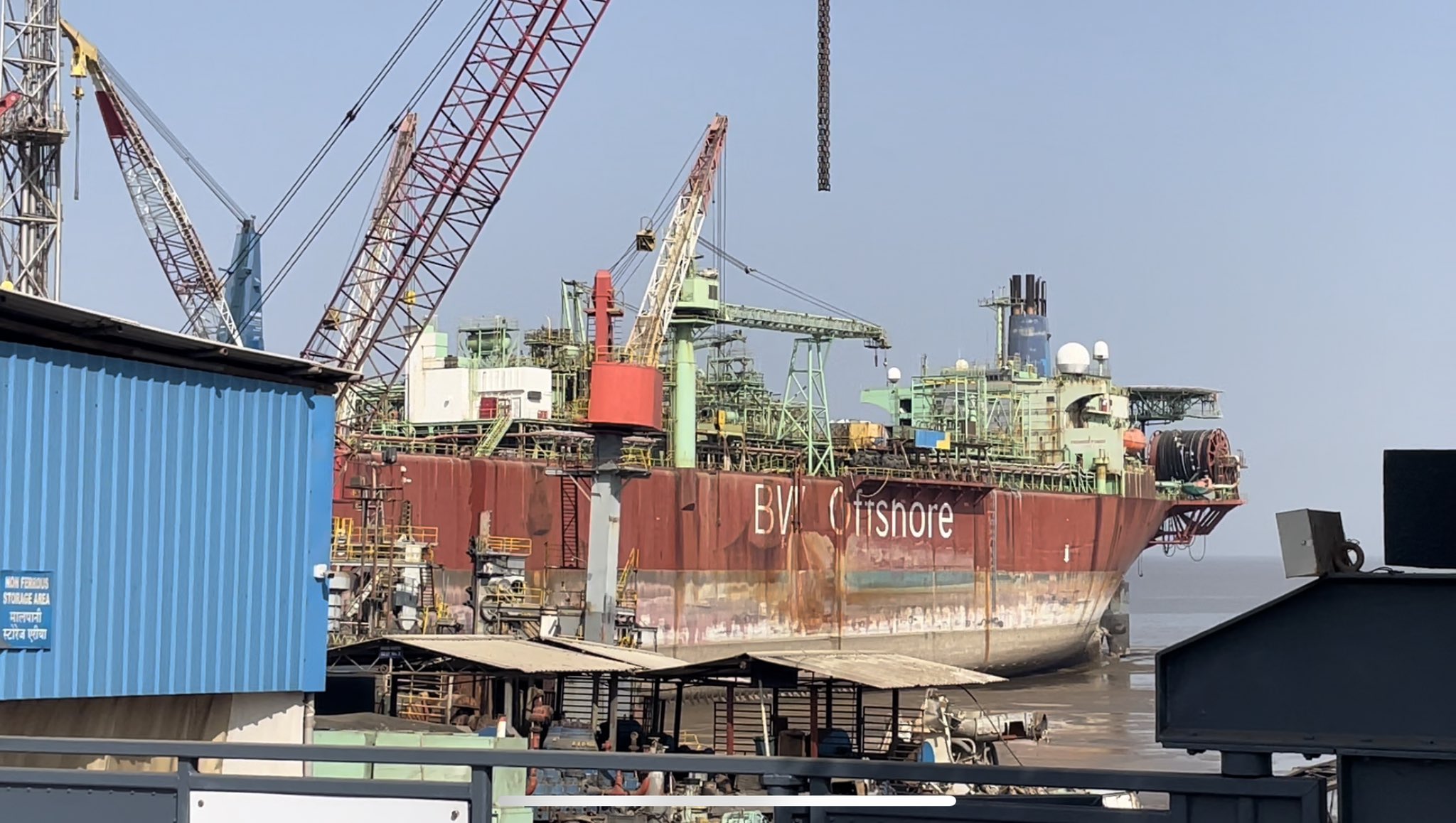
Despite having been offered a more sustainable solution for the recycling of the vessel when it was in the Middle East by new-comers Elegant Exit Company at the Bahrain-based ASRY dry-dock and SULB steel production facility, BW Offshore decided to sell the FPSO to the Indian beaching yard for a supposedly higher price. Assisted by Arctic Shipbrokers, Grieg Green and Priya Blue’s cash buyer Best Oasis, the deal was branded as a green sale. The FPSO changed its name to VICE and its flag to St Kitts and Nevis before it was ramped up on the Alang tidal mudflat.
Priya Blue Industries was amongst the first yards in India to obtain a so-called “Statement of Compliance with the Hong Kong Convention” from Japanese ClassNK, and is also member of the Sustainable Shipping Initiative since 2018. However, recent audit reports by the European Commission have highlighted a series of structural deficiencies at the Alang shipbreaking yards, including Priya Blue Industries, related to the lack of infrastructure to contain pollutants in the primary cutting area, the non-existence of capacity to handle several hazardous wastes originating from ships downstream, the absence of medical facilities and breaches of labour laws. In 2019, the NGO Shipbreaking Platform documented another fatal accident at Priya Blue Industries, and Dutch investigative program Zembla uncovered that same year the shocking conditions under which the scrapping of the mercury-laden Floating Storage and Offloading (FSO) tanker YETAGUN took place in another site owned by Priya Blue.
In what is a significant improvement, Dutch company SBM Offshore, owner of the infamous YETAGUN, radically changed their recycling policy after the revelations of Zembla by banning the use of beaching yards and only allowing the scrapping of its offshore assets at yards that use a dry-dock or the landing on concrete slope with drainage system.

NOTES
[1] Read our latest South Asia Quarterly Update and our Recycling Outlook report for more information on the decommissioning of FSOs and FPSOs.
Related news
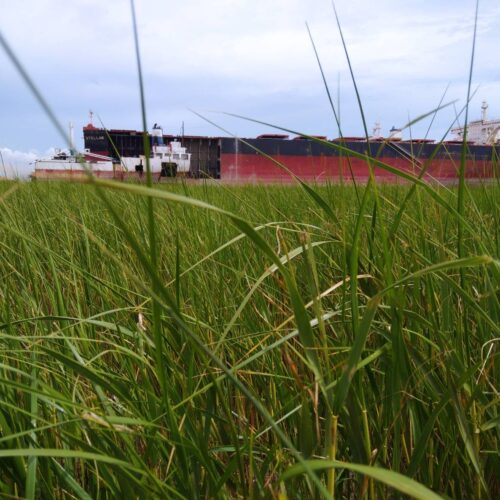
Platform publishes South Asia Quarterly Update #33
Six workers suffered an accident on South Asian beaches in the first quarter of 2023.
... Read More
Platform News – Global ban on exporting hazardous waste to developing countries becomes law
The Basel Ban Amendment, adopted by the Parties to the Basel Convention in 1995, became international law on December 5.
... Read More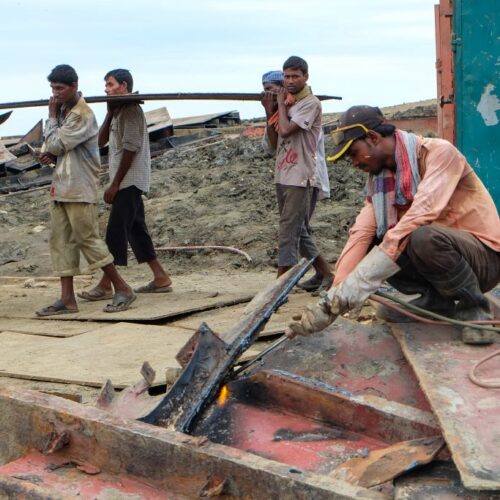
Press Release – Norwegian ambassador undermines Norwegian law
Bellona and the NGO Shipbreaking Platform, along with several stakeholders within Norway’s recycling and waste industry, have sent an open letter to the Norwegian Minister of Foreign… Read More
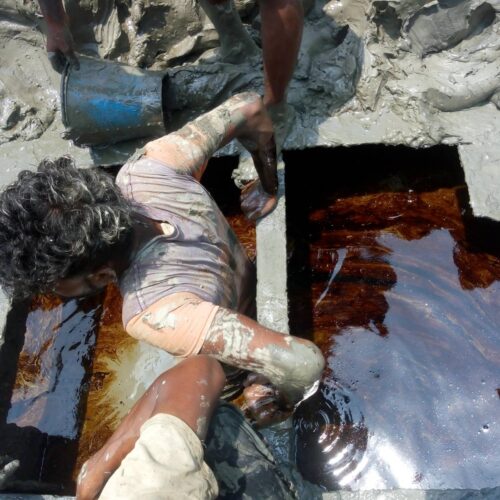
Platform publishes South Asia Quarterly Update #35
Four workers suffered an accident on South Asian beaches in the third quarter of 2023.
... Read More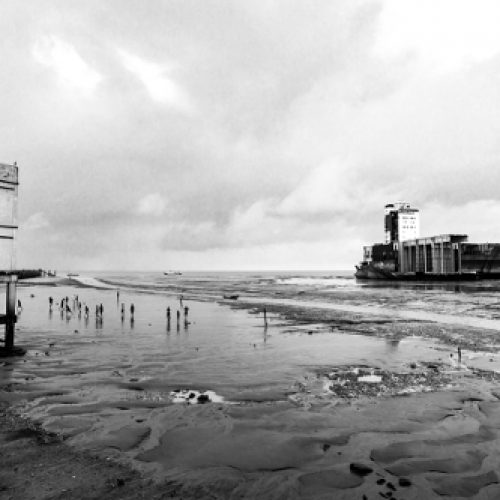
Press Release – Platform publishes list of ships dismantled worldwide in 2016
Read our country-specific press releases: Brazil | Germany | Greece | Italy

Press Release – Brazilian Navy suddenly seizes its old warship forcing it to sea
NGOs urgently call on President Lula to prevent Navy from sinking toxic ship in the Atlantic.
... Read More
Press Release – Brazilian government asked to stop dumping toxic ships on South Asian beaches
The Brazilian CONTTMAF trade union federation and its member SINDMAR [1] have recently criticized the shipbreaking practices of Transpetro, the oil and gas transportation subsidiary of… Read More

